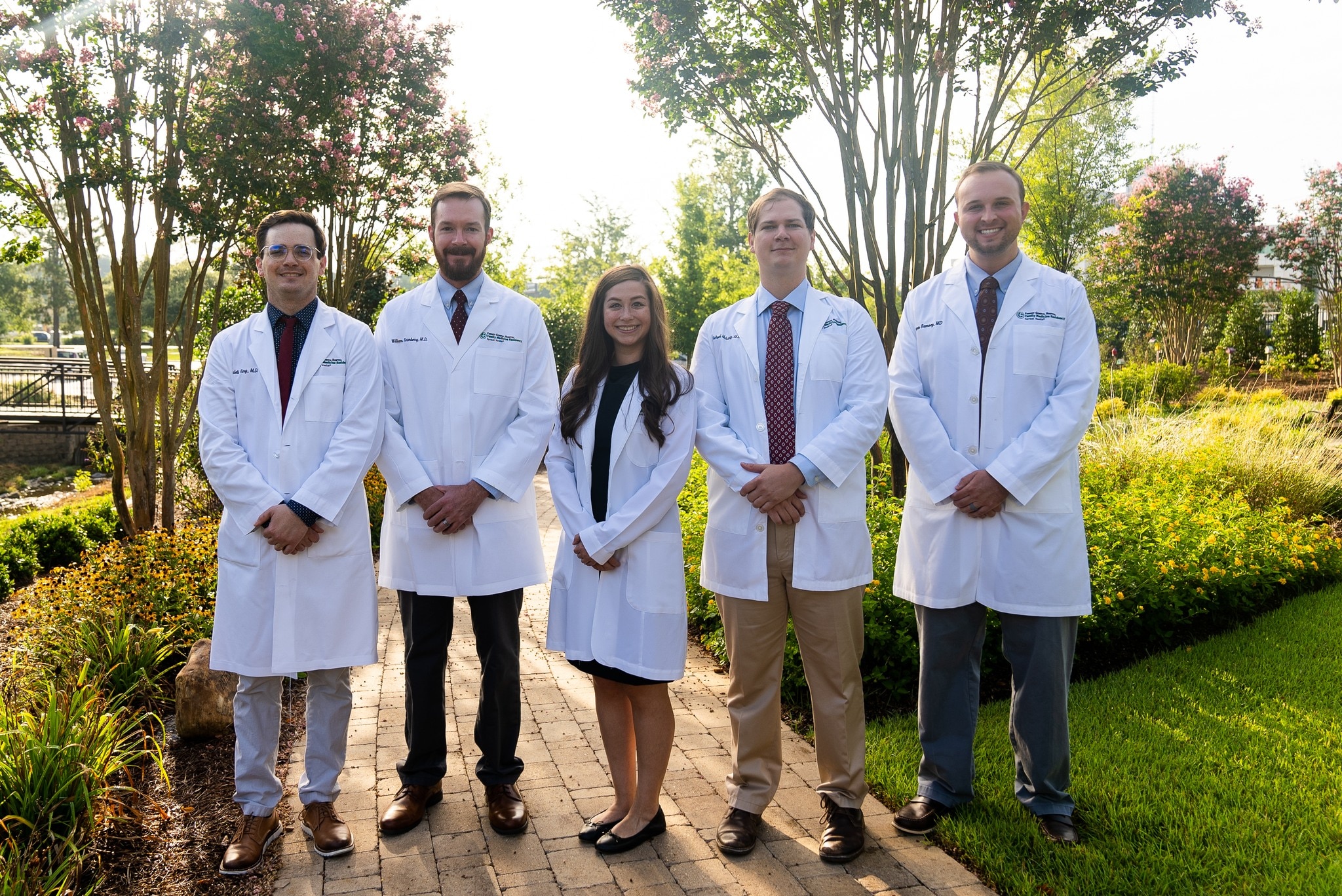Forrest General Hospital Family Medicine Residency Program Ranked Fourth in the Nation

HATTIESBURG, Miss. – (March 14, 2024) For those patients seeing physicians at the Forrest General Hospital Family Medical Residency Clinic, rest assured, you are in good hands. The FGH program is ranked fourth in the nation for board scores amongst programs whose graduates all took the American Board of Family Medicine’s board examination in 2023. Forrest General Hospital’s program follows the University of Vermont, Wake Forest (NC), and Kaiser Permanente San Diego (Calif.).
There are currently 773 Family Medicine Residency programs in the United States with nearly 11,400 residents. A resident doctor is a medical school graduate and doctor in training who's taking part in a graduate medical education (GME) program in the specialty of their choice.
For a resident to be eligible to take a specialty board exam and become a board-certified doctor, they must graduate from residency. Once that happens, they can sit for the exam, and if they pass, they become board-certified by the ABFM. Rambod Rouhbakhsh, MD, director of the FGH program, said family medicine residents on track to graduate, as certified by the program director, can sit for the boards just prior to graduation. Board exams are required for each specialty – Family Medicine, Pediatrics, Surgery, etc. – and must be retaken every 10 years.
Since the FGH program graduated its first class in 2016 (students enrolled in 2013 for the three-year training program), there has been a 100 percent board passage rate on the first attempt. “That in and of itself is an achievement we have been quite proud of,” said Rouhbakhsh. “We are among the few institutions to be able to boast that we’ve never had a failure.”
Three of the past four graduating classes have scored in the 95th percentile nationally for board scores, putting the program in the top five percent. “Traditionally, we’ve been the top-scoring program in our geographic area,” Rouhbakhsh said.
The last graduating class, in 2023, scored in the 99.6th percentile, or the top 0.4% – No. 4 out of 773 programs.
Dr. Rouhbakhsh said all residents in the U.S. take an in-training exam given by their examining board. This gauges their likelihood of passing the board exam. He explained that when residents come to the FGH program from medical school, they are usually below the national average. “By year two, we get to par with the national average and by year three we typically crush the national average,” he said.
It’s significant to have this residency program here at Forrest Health.
“Three-fourths of our graduates are practicing medicine in the state of MS with a large majority of those folks being in Forrest Health’s service area,” Rouhbakhsh said. “To get these doctors to Hattiesburg, without a residency program, would have been a remarkable endeavor. It costs a lot of money to recruit a doctor to the area.”
Since 2016, FGH has graduated seven classes. Rouhbakhsh said. “That’s a lot of family docs to seed into the community with the grand majority being in our service area.” He said Hattiesburg Clinic has been the main employer of our graduates and Forrest Health has started to add our family doctors as well. “It’s important to have family doctors. It’s more important to have quality family doctors, and we are, at least by this standard, producing amongst the best in the country.”
Rouhbakhsh said it is fortunate that Forrest Health and Hattiesburg Clinic are desirable opportunities for FGH residents. “That’s an advantage we have. People tend to want to stay here, even though they are not obligated to do so.”
March 14 is Match Day for the residency program when FGH will find out who its next class of residents will be. Where the program has been a six-resident per class program since its inception, this year it will be expanding to eight residents. Thanks to some national legislation, there has been an opportunity to apply for growth in residency programs.
FGH was awarded three total spots, but Rouhbakhsh said they, “will likely be applying again for two more cycles which would ultimately allow the residency program to expand to a 24-person residency instead of an 18-person, which is where we are currently.”
As the residency program’s role in the community has grown, the program is providing more services. According to Rouhbakhsh, the residency clinic took over employee health for FGH as well as pre-operative patient management. Every person scheduled for elective surgery at FGH comes to the residency clinic for pre-surgical evaluation. They also play an integral role in Edwards Street Medical Clinic, where the residents are the primary workforce for this medically underserved community.
“As our role has grown in the community, we have taken on more responsibilities,” Rouhbakhsh said. “We are fortunate to now have the opportunity to train and produce more high-quality family doctors for our community.”
For more information about FMRC, visit fghfamilymedicine.com.